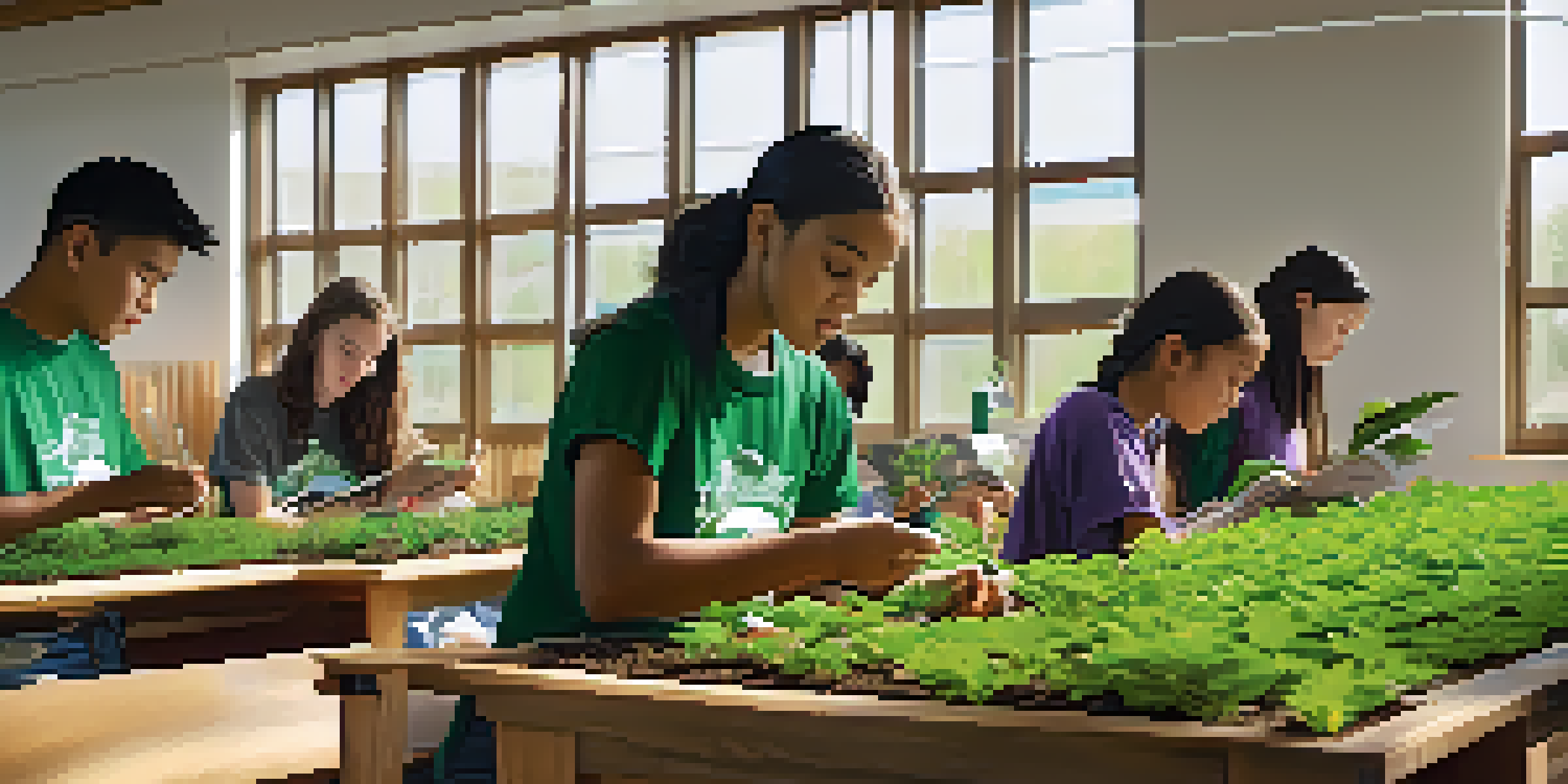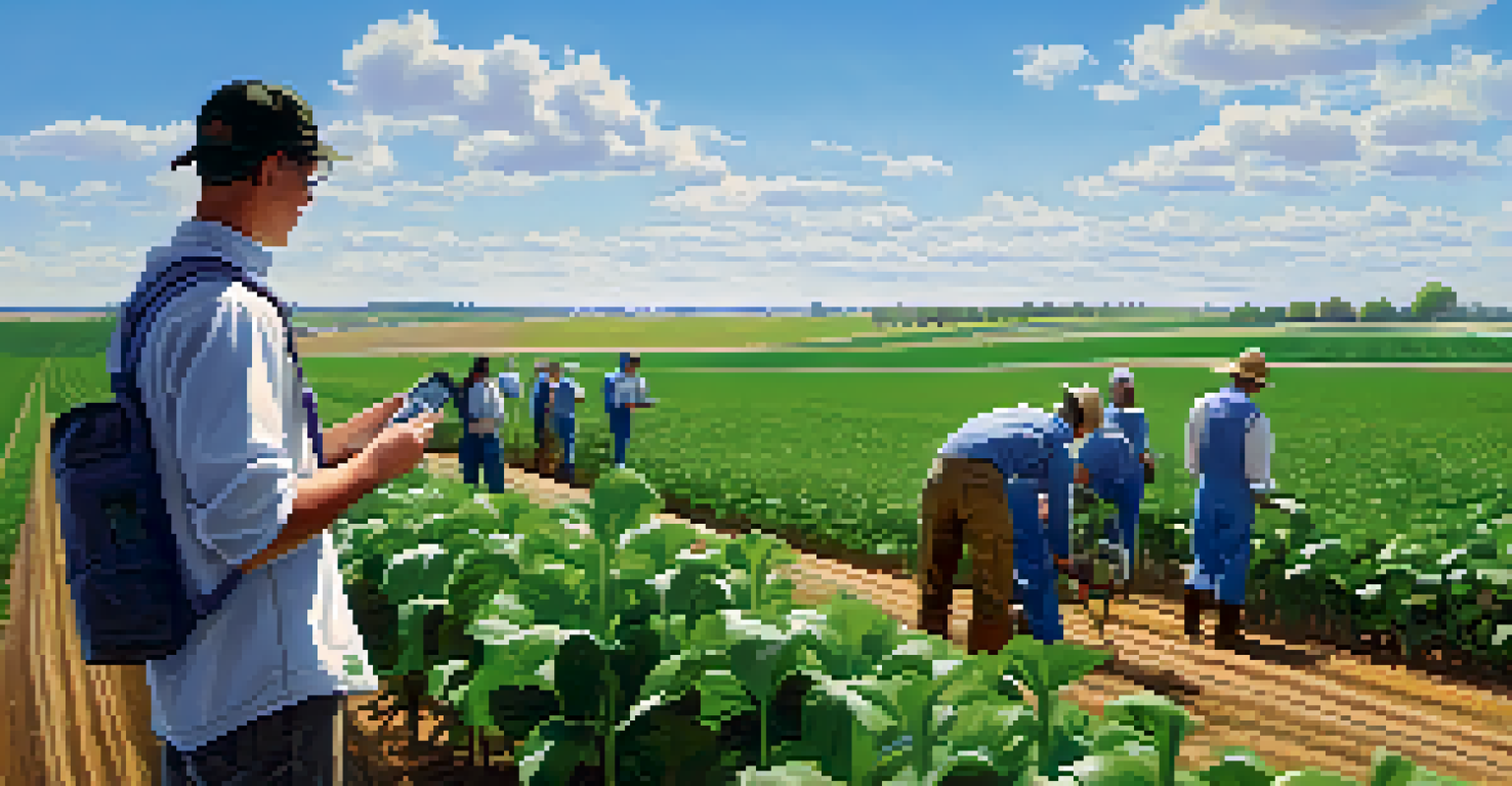Kansas State University and Its Role in Agricultural Education

A Legacy of Agricultural Education at K-State
Kansas State University (K-State) has a rich history that dates back to its founding in 1863, making it a cornerstone of agricultural education in the United States. As the first land-grant university in the nation, K-State was established with the mission to promote agricultural and technical education for the benefit of the public. This foundational commitment to agriculture has shaped its programs and research initiatives over the years.
Education is the most powerful weapon which you can use to change the world.
The university's College of Agriculture offers a diverse array of degree programs, from agronomy to animal science, reflecting the evolving demands of the agricultural sector. K-State emphasizes hands-on learning through its numerous research farms and facilities, providing students with practical experience that complements their theoretical studies. This blend of education ensures that graduates are well-prepared to tackle real-world agricultural challenges.
Additionally, K-State's engagement with the agricultural community extends beyond the campus. The university collaborates with local farmers, agribusinesses, and governmental agencies to address pressing issues in agriculture, such as sustainability and food security. This symbiotic relationship enriches the educational experience for students and supports the broader agricultural landscape.
Innovative Research Initiatives at K-State
Research is at the heart of K-State's agricultural education mission, driving innovation in practices and technologies. The university is home to several research centers dedicated to various agricultural fields, including the Kansas Agricultural Experiment Station. These centers focus on critical areas such as crop genetics, pest management, and sustainable farming practices, providing valuable insights that benefit farmers across the state and beyond.

One notable initiative is the university's work on precision agriculture, which leverages technology to increase efficiency and reduce waste. Through cutting-edge research, K-State is helping farmers adopt practices that not only enhance productivity but also protect the environment. This commitment to sustainability is vital in addressing the global challenges of food production and climate change.
K-State's Rich Agricultural Legacy
Kansas State University has established itself as a leader in agricultural education since its founding in 1863, providing diverse degree programs and hands-on learning experiences.
Moreover, K-State encourages student involvement in research projects, fostering a culture of inquiry and discovery. Under the mentorship of experienced faculty, students have the opportunity to engage in meaningful research, present their findings at conferences, and contribute to published studies. This experience not only enriches their education but also prepares them for future careers in agriculture.
K-State's Commitment to Extension Services
K-State's commitment to agricultural education extends into the community through its Extension Services. The Kansas State University Cooperative Extension Service provides resources, training, and support to farmers and agricultural professionals throughout the state. This outreach is essential in disseminating research findings and best practices to those who can benefit most from them.
The farmer has to be an optimist or he wouldn’t still be a farmer.
Through workshops, seminars, and one-on-one consultations, K-State Extension agents help address local agricultural challenges and promote innovative practices. For instance, they offer guidance on crop management, livestock care, and sustainable farming techniques, empowering farmers to make informed decisions. This direct support plays a crucial role in enhancing the overall agricultural productivity of Kansas.
Additionally, K-State's Extension Services cater to diverse audiences, including youth programs that engage the next generation in agricultural education. Initiatives like 4-H and FFA provide students with hands-on experiences, leadership opportunities, and a deeper understanding of agriculture. These programs not only foster a passion for agriculture but also cultivate future leaders in the field.
Student Organizations and Leadership Development
At K-State, student organizations play a pivotal role in enhancing the educational experience for those pursuing agricultural studies. Organizations such as the Agricultural Student Council and various discipline-specific clubs provide platforms for students to connect, collaborate, and grow their leadership skills. These groups often organize events, networking opportunities, and community service projects that reinforce the values of teamwork and service.
Participation in these organizations helps students develop essential skills that are highly valued in the agricultural industry, such as communication, problem-solving, and project management. Additionally, these groups foster a sense of belonging and community among students, making their time at K-State not just about academics but also about personal growth and connections.
Innovative Research and Sustainability
K-State is at the forefront of agricultural research, focusing on sustainability and precision agriculture to enhance productivity while protecting the environment.
Moreover, student organizations often serve as a bridge between the university and the agricultural community, allowing students to engage with industry professionals and gain insights into various career paths. This exposure is invaluable in preparing students for successful careers in agriculture, as they gain firsthand knowledge of industry trends and challenges.
Global Impact of K-State's Agricultural Programs
K-State's influence extends far beyond the borders of Kansas, thanks to its commitment to global agricultural education and outreach. The university collaborates with international partners to share research, best practices, and educational resources that address global agricultural challenges. These partnerships help strengthen food security and improve agricultural practices in developing countries.
Through programs like the Global Food Systems Initiative, K-State is actively engaged in addressing issues such as hunger, nutrition, and sustainable agriculture on a global scale. This initiative brings together faculty, students, and industry leaders to explore innovative solutions that can be implemented worldwide. By focusing on these critical areas, K-State contributes to a more sustainable and equitable food system.
Additionally, K-State offers international study programs that allow students to experience agriculture in different cultural contexts. These experiences enrich their education and broaden their perspectives, fostering a global mindset that is essential in today's interconnected world. As K-State continues to expand its global reach, it remains dedicated to making a positive impact in agriculture and beyond.
K-State's Role in Sustainable Agriculture
Sustainability is a cornerstone of K-State's agricultural education initiatives. The university actively promotes sustainable practices through research, education, and community outreach, recognizing the importance of protecting natural resources for future generations. Programs focused on sustainable agriculture aim to equip students with the knowledge and skills needed to implement environmentally friendly practices in their careers.
K-State's faculty and researchers are at the forefront of investigating sustainable farming techniques, including organic farming, water conservation, and soil health. Their findings contribute to the development of practices that enhance productivity while minimizing environmental impact. This commitment to sustainability resonates with students who are increasingly passionate about making a difference in the world.
Global Outreach and Community Impact
Through international partnerships and Extension Services, K-State actively addresses global agricultural challenges and supports local farmers with vital resources and training.
Furthermore, K-State's involvement in sustainability extends to campus initiatives that promote eco-friendly practices. From recycling programs to energy-efficient facilities, the university aims to model sustainable behaviors for its students and the community. By integrating sustainability into its agricultural education, K-State prepares students to be responsible stewards of the land.
Conclusion: The Future of Agricultural Education at K-State
Looking ahead, Kansas State University is poised to continue its leadership role in agricultural education. As the agricultural landscape evolves with advancements in technology and changing global needs, K-State remains committed to adapting its programs and research initiatives. This proactive approach ensures that students receive a relevant and comprehensive education that prepares them for the challenges of the future.
The university's strong emphasis on collaboration with industry partners, government agencies, and the agricultural community will be essential in addressing emerging issues in agriculture. By fostering these relationships, K-State can ensure that its educational programs remain aligned with the needs of the sector, ultimately benefiting students and the broader agricultural community.

As K-State prepares the next generation of agricultural leaders, its legacy of innovation, sustainability, and community engagement will continue to thrive. The university's unwavering commitment to agricultural education not only shapes the lives of its students but also contributes to the resilience and sustainability of agriculture in Kansas and beyond.